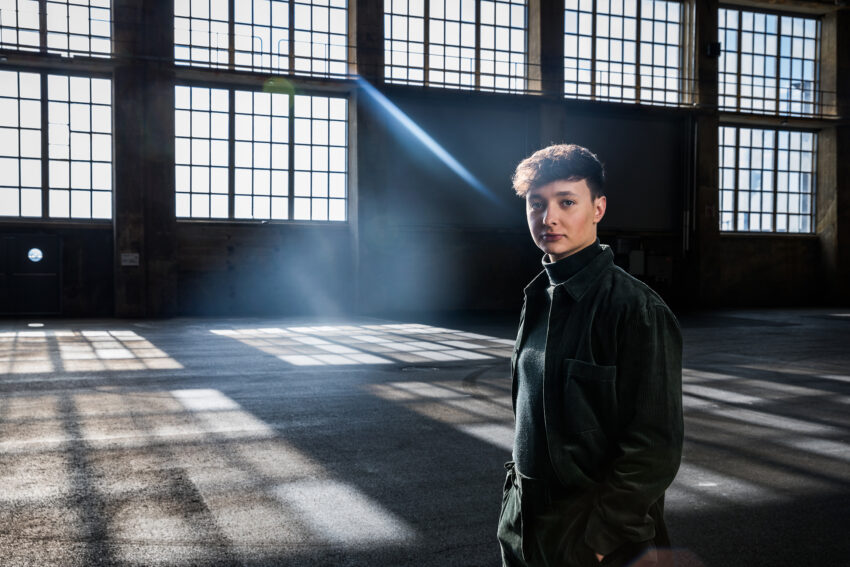Switzerland jumps on the wave of existential ballads with a great male voice for its representation in this year’s Eurovision Festival 2023, led by the young prodigy of just 21 years old, Remo Forrer, who will seek to continue with the good streak of classification for the final that the Helvetic country managed to regain with Luca Hänni in 2019. An international team of composers formed by the Scottish Argyle Singh, the English Ashley Hicklin, and the Polish Mikołaj Trybulec are behind the theme that the soloist will perform on the Liverpool stage.
Conoce más a Remo Forrer
Remo Forrer was born on September 5, 2001, in Hemberg, a small town in the municipality of Neckertal, in the canton of St. Gallen, in the German-speaking part of Switzerland. In 2020, he became known in his country after winning the third edition of The Voice of Switzerland in the middle of the pandemic, and with the grand final from his home. With the help of coach Noah Veraguth, Remo interpreted great male ballads of the last years in all his rounds, winning thanks to Harry Styles’ “Sign of the Times,” and having performed Lewis Capaldi’s “Someone You Loved” twice.
Additionally, Remo also participated as a guest in the third season of the German version of I Can See Your Voice, where he was introduced as a “real estate agent,” but the contestants couldn’t predict that he was also a singer. Nowadays, Remo still lives in Hemberg and has been playing the flute, accordion, and piano since he was a child, having learned to play the latter by ear on his own.
On February 20, 2023, SRG SSR announced him as its representative at this year’s Eurovision Festival after a panel of 100 popular members and 23 music professionals. His song to wave the Swiss flag in Liverpool, Watergun, was presented on Tuesday, March 7, and follows the path of great male ballads that he already interpreted in The Voice and seem to guide his musical journey.
Lyrics of Watergun
Original lyrics
When we were boys
We played pretend
Army tanks and army men
Hide and seek
Grow to be the kings we dream
Where did we go?
We’re standin’ on the frontline
Where did we go, we go?
I don’t wanna be a soldier, soldier
I don’t wanna have to play with real blood
We ain’t playin’ now
Can’t turn and run
No water guns
No, no, I don’t wanna be a soldier, soldier
I don’t wanna have to play with real blood
‘Cause we ain’t playin’ now
Can’t turn and run
No water guns
Just body bags that we’ve bеcome
Adolescencе, breaking rules
Nothin’ hurts when you‘re bulletproof
I remember, yes, I do, I do
Where did we go?
We’re standin’ on the frontline
Where did we go, we go?
I don’t wanna be a soldier, soldier
I don’t wanna have to play with real blood
We ain’t playin’ now
Can’t turn and run
No water guns
No, no, I don’t wanna be a soldier, soldier
I don’t wanna have to play with real blood
‘Cause we ain’t playin’ now
Can’t turn and run
No water guns
Just body bags that we’ve become
What we’ve become
What we’ve become
What we’ve become
Playing with waterguns
Not playing with waterguns
Switzerland at Eurovision
Switzerland was one of the founder countries of the Eurovision Festival in 1956, becoming the first host country and also the first winner, thanks to the magnificent performance of Lys Assia that year in Lugano with her now iconic song Refrain. In total, Switzerland has participated in the festival 62 times, of which 51 have reached the grand final, making it one of the countries present in the most editions, having only missed the ones in 1995, 1999, 2001, and 2003, all after poor results.
Since that first participation, the Helvetic country has been able to win only once more, in 1988 with the now globally recognized icon of Canadian and worldwide music, Céline Dion, who with her moving song Ne partez pas sans moi conquered Dublin.
However, since the beginning of the 21st century, Switzerland has not been able to achieve great results during most of its participations, failing to reach the grand final 11 times out of 19. Nevertheless, it seems that in recent years, Switzerland has managed to regain momentum and rise, with three consecutive qualifications and two places within the top 4, thanks to Luca Hänni in 2019 and Gjon’s Tears in 2021, who won the bronze medal.
Marius Bear represented Switzerland at the 2022 Eurovision Festival in Turin with the ballad Boys Do Cry, which again qualified for the final, where it reached a respectable 17th place with 78 points, despite receiving a devastating 0 points from the televote.

